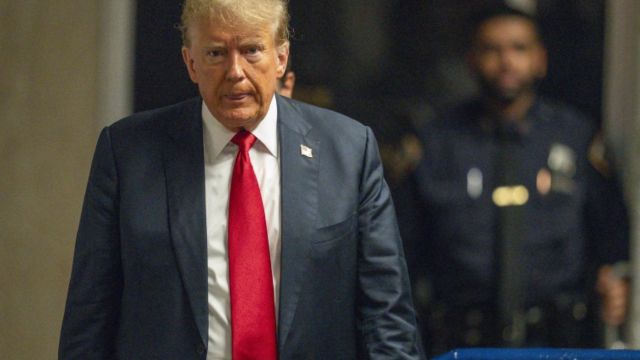The Impact of a Felony Conviction on Trump’s Voting Rights: An Unlikely Outcome
DEBARYLIFE – The former president’s rights would be up for debate if he is found guilty of falsifying corporate documents in New York, as a jury is currently deciding whether or not he would be declared a felon.
According to the Florida Division of Elections website, a resident of Florida with a felony record in another state is only disqualified from voting in Florida “if the conviction would make the person ineligible to vote in the state where the person was convicted.”Since 2019, Trump has resided in Florida.
Therefore, even if Trump were found guilty in New York and prohibited from voting there, he would still be allowed to vote in Florida.
However, in New York, felons only lose their right to vote while they are incarcerated, so even in that case, Trump would be allowed to vote as long as he stays out of jail.

For each of the 34 felony counts against him, Trump is subject to a fine of up to $5,000 and a maximum penalty of four years in prison.
SEE MORE – Trump’s Bronx Rally Sends Anti-Racist Signal to Swing State Voters, Says MSNBC Analyst
However, legal experts have largely stated that it is improbable that Trump will receive a jail sentence, at least in part due to the potential “ripple effect” that a former president in jail would have.
Citing New York’s felon voting procedures, Campaign Legal Center attorney Blair Bowie told NBC News that the only way Trump “wouldn’t be able to vote is if he is in prison on Election Day.”
If found guilty, Trump may also file an appeal and request that any prospective prison term be postponed while the case is being heard. This would allow him to maintain his right to vote even if he is sentenced to prison.
The Constitution merely stipulates that a candidate for president must be at least 35 years old, a natural-born citizen, and have resided in the United States for at least 14 years. Therefore, a conviction would not bar Trump from seeking the presidency.











